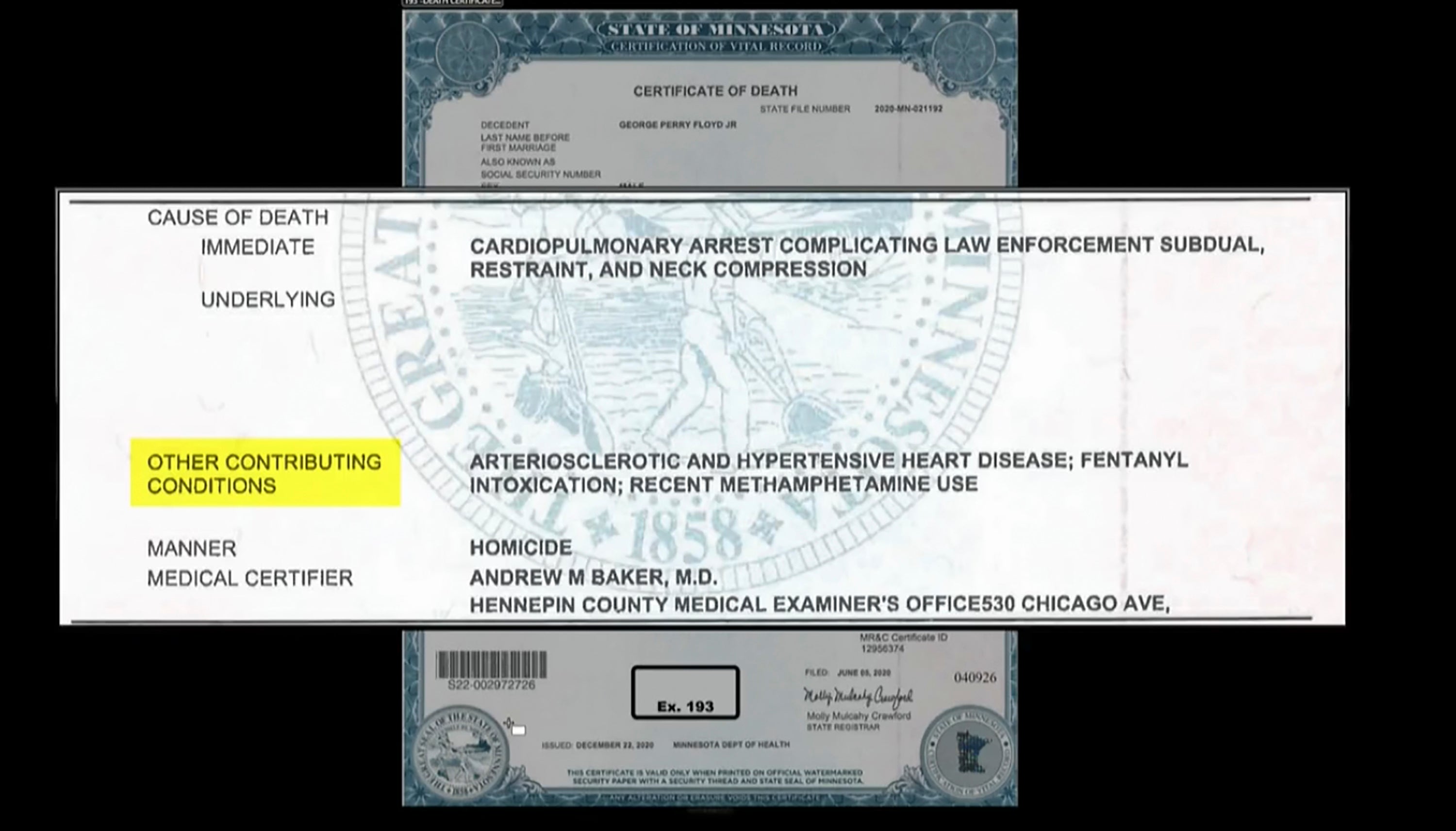EXPLAINER: 'Contributing' factors in Floyd death key to case
Doctors charged with determining the cause of an individual’s death try to learn all they can about the person’s life

Your support helps us to tell the story
From reproductive rights to climate change to Big Tech, The Independent is on the ground when the story is developing. Whether it's investigating the financials of Elon Musk's pro-Trump PAC or producing our latest documentary, 'The A Word', which shines a light on the American women fighting for reproductive rights, we know how important it is to parse out the facts from the messaging.
At such a critical moment in US history, we need reporters on the ground. Your donation allows us to keep sending journalists to speak to both sides of the story.
The Independent is trusted by Americans across the entire political spectrum. And unlike many other quality news outlets, we choose not to lock Americans out of our reporting and analysis with paywalls. We believe quality journalism should be available to everyone, paid for by those who can afford it.
Your support makes all the difference.Doctors charged with determining the cause of an individual's death try to learn all they can about the person's life, medical experts testified Friday at former Officer Derek Chauvin’s murder trial.
The results of an autopsy, lab tests and conversations with medical providers and others who knew the person are boiled down to a few entries on a death certificate, including the cause and manner of death.
But the document also provides information about other conditions that contributed to, but didn't cause, the death.
In George Floyd s case, the Hennepin County chief medical examiner concluded last year that Floyd died from cardiopulmonary arrest — his heart stopped — complicated by the way police restrained him and compressed his neck as the Black man lay on the pavement.
The certificate also listed “ other contributing conditions ” as narrowed arteries, high blood pressure, fentanyl intoxication and recent methamphetamine use.
Why does that additional information belong on a death certificate?
Fundamentally, the federal Centers for Disease Control and Prevention determines what must be included on a death certificate, with some variation between states, experts said.
“The other significant conditions are things that played a role in the death, but didn’t directly cause the death,” testified Dr. Andrew Baker, the chief medical examiner for Hennepin County.
In this case, Baker said Floyd's health conditions and use of drugs did not "cause the subdual or neck restraint” by police.
Documenting contributing conditions also can add to an understanding of public health, Dr. Lindsey Thomas a forensic pathologist who retired in 2017 from the Hennepin County Medical Examiner’s Office, testified Friday. Each piece of information on a death certificate becomes a data point for public health officials, she said.
“We aren’t just thinking about this particular person and their cause and manner of death,” she said. “We’re also thinking, ‘The state and federal government collect data on why do people die.’”
Dr. Michael Graham, a professor of forensic pathology at Saint Louis University’s School of Medicine who is not involved in the Chauvin case, said that's why it is important for medical examiners to be precise in listing contributing conditions. If someone dies in a car crash, a minor sexually transmitted disease isn't relevant to their death, he said.
“If we’re trying to base policy on why people die, putting stuff on there that's unrelated to why they die is really contrary to helping public health,” Graham said.
Eric Nelson, Chauvin's defense attorney, has argued that the officer did as he was trained and suggested that Floyd's death was caused by his use of illegal drugs and existing health conditions.
Nelson repeatedly questioned Thomas and Baker on Friday about whether the presence of drugs in Floyd's system or his heart disease contributed to the man's death. Both maintained that neither caused Floyd's death.
Floyd did have severe heart disease, an enlarged heart and narrowing of two arteries.
“And in my opinion, the law enforcement subdual, restraint and the neck compression was just more than Mr. Floyd could take by virtue of that, those heart conditions,” Baker said.
___
Find AP’s full coverage of the death of George Floyd at: https://apnews.com/hub/death-of-george-floyd